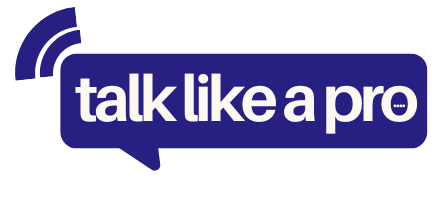When someone shares with you that their work is hectic, a simple and empathetic response could be: “I’m really sorry to hear that you’re feeling overwhelmed at work. It can be tough to juggle so many responsibilities.” This response acknowledges their struggle and opens the door for further conversation.
Now, let’s get a little deeper into why this response works and discuss the importance of empathetic communication in our interactions. In today’s fast-paced world, it’s common for people to feel overwhelmed by their workload. When someone shares their stress with you, it’s crucial to respond with empathy and understanding. By doing so, you create a safe space for open communication and mutual support.
1. Empathetic Responses
“I can only imagine how stressful that must be for you.”
Empathetic responses are crucial in validating the feelings of the person sharing their stress. The highlighted response acknowledges their struggle and shows understanding. Other empathetic responses could include:
- “That sounds really tough.”
- “I’m sorry you’re going through this.”
- “It’s completely normal to feel overwhelmed in such situations.”
- “I appreciate you sharing this with me.”
- “I can see why you’re feeling this way.”
2. Encouraging Responses
“Remember, it’s okay to take a break when needed.”
Encouraging responses can provide a boost of motivation and reassurance. The highlighted response reminds them of the importance of self-care. Here are more encouraging responses:
- “You’re doing the best you can.”
- “You’ve got this, one step at a time.”
- “Remember to breathe and take things slowly.”
- “It’s okay to ask for help.”
- “You’re stronger than you think.”
3. Supportive Responses
“Is there anything I can do to help?”
Supportive responses offer assistance and show your willingness to help. The highlighted response opens up a conversation about potential solutions. Here are more supportive responses:
- “Let’s brainstorm some ways to make this easier for you.”
- “I’m here for you if you need to talk.”
- “Would it help to discuss this over a cup of coffee?”
- “Let’s prioritize your tasks together.”
- “I can take some tasks off your plate if that would help.”
4. Reflective Responses
“It sounds like you have a lot on your plate right now.”
Reflective responses mirror the speaker’s feelings, showing that you’re actively listening. The highlighted response acknowledges their workload. Here are more reflective responses:
- “You seem really stressed about work.”
- “It appears that work is causing you a lot of anxiety.”
- “I can tell that you’re feeling overwhelmed.”
- “It sounds like work is challenging you right now.”
- “You look like you could use a break.”
5. Positive Responses
“You’ve handled tough situations before, and I’m sure you’ll navigate this one too.”
Positive responses can lift spirits and provide a fresh perspective. The highlighted response reinforces their ability to handle challenges. Here are more positive responses:
- “This too shall pass.”
- “You’ve got the skills to manage this.”
- “Look at how far you’ve come already.”
- “Every challenge is an opportunity for growth.”
- “You’re capable of more than you think.”
6. Validating Responses
“It’s completely understandable to feel overwhelmed in such situations.”
Validating responses affirm the speaker’s feelings, making them feel heard and understood. The highlighted response validates their stress. Here are more validating responses:
- “Anyone would feel stressed in your situation.”
- “It’s normal to feel this way when there’s so much to do.”
- “You’re not alone in feeling this way.”
- “Your feelings are valid.”
- “It’s okay to feel overwhelmed.”
7. Open-ended Responses
“Can you tell me more about what’s causing you stress?”
Open-ended responses encourage further conversation and help the speaker open up. The highlighted response invites them to share more. Here are more open-ended responses:
- “How are you coping with the stress?”
- “What’s the most challenging part of your work right now?”
- “How can I support you better?”
- “What do you think would help you feel less overwhelmed?”
- “What steps have you taken to manage the stress?”
8. Solution-oriented Responses
“Have you considered delegating some tasks to your team members?”
Solution-oriented responses suggest potential solutions to the problem. The highlighted response offers a possible solution. Here are more solution-oriented responses:
- “Maybe it’s time to prioritize your tasks.”
- “Have you thought about seeking professional help?”
- “Could you talk to your manager about your workload?”
- “Perhaps taking a short break could help.”
- “Have you considered using productivity tools?”
9. Calming Responses
“Take a deep breath, you’re doing the best you can.”
Calming responses can help soothe the speaker and reduce their stress. The highlighted response encourages relaxation. Here are more calming responses:
- “Remember, one thing at a time.”
- “You’re stronger than this situation.”
- “It’s okay to take a step back and regroup.”
- “You’ve got this under control.”
- “This situation is temporary.”
10. Light-hearted Responses
“Well, at least it’s not raining inside the office, right?”
Light-hearted responses can provide a moment of relief and laughter. The highlighted response adds a touch of humor. Here are more light-hearted responses:
- “On the bright side, you’re not stuck in a traffic jam.”
- “At least you’re not a character in a tragic novel.”
- “Well, it could be worse – you could be a goldfish with a 3-second memory.”
- “Remember, even superheroes need a break.”
- “At least you’re not trying to solve a Rubik’s cube blindfolded.”
1. How to Respond to a Girl Saying ‘Work is Hectic’
Responding to a girl who shares that her work is hectic requires empathy and understanding. You might say, “I’m really sorry to hear that you’re feeling overwhelmed at work. It can be tough to juggle so many responsibilities. Is there anything I can do to help?” This response acknowledges her feelings and offers support.
2. How to Respond to a Guy Saying ‘Work is Hectic’
Similarly, when a guy shares that his work is hectic, a suitable response could be, “I can only imagine how stressful that must be for you. Remember, it’s okay to take a break when needed.” This response validates his feelings and provides reassurance.
Key Takeaways
- Empathy is Key: When someone shares their stress, respond with empathy. This validates their feelings and opens the door for further conversation.
- Offer Support: Whether it’s a simple “I’m here for you” or a more specific offer of help, showing your willingness to support can make a significant difference.
- Encourage Self-Care: Remind them of the importance of taking care of themselves, even when work is hectic.
Your words have power. They can validate feelings, provide comfort, and even inspire change. So, the next time someone shares that their work is hectic, take a moment to consider your response. Your words might just be the encouragement they need to navigate through their challenges.



